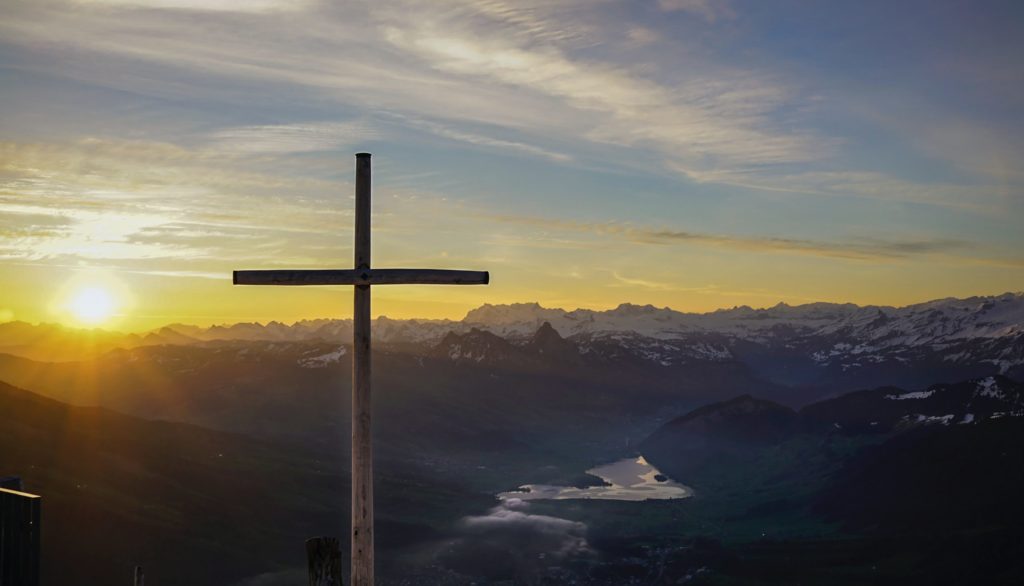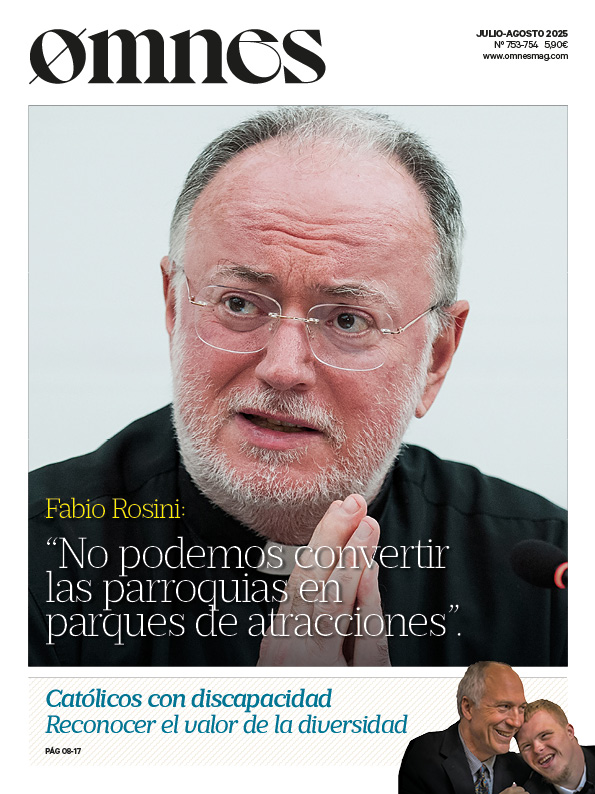Religious freedom is not just a concern for the faithful; it is a fundamental human right that strengthens the very fabric of democratic society. In an era of increasing polarization, where beliefs and ideologies often clash, the ability to freely practice or reject religion remains a cornerstone of human dignity and social harmony.
For believers and non-believers alike, religious freedom is deeply intertwined with other essential rights, such as freedom of expression and freedom of association. These rights do not exist in isolation, but are mutually reinforcing. When one is undermined, the ripple effect weakens the broader framework of civil liberties. This is why repressive government crackdowns on religious expression, whether through censorship, imprisonment or violence, are more than just attacks on faith. They signal a dangerous erosion of human rights.
As the modern world grapples with issues of identity, governance and coexistence, the role of religious freedom must remain prominent in cultural and political discourse. It is not just a privilege for the devout, but a necessary condition for justice, the peace and human flourishing.
How do we define religious freedom?
Religious freedom and what it entails from a legal perspective is articulated in Section 1, Article 9 of the European Convention on Human Rightswhich states that "Everyone has the right to freedom of thought, conscience and religion; this right includes freedom to change his religion or belief, and freedom, either alone or in community with others and in public or private, to manifest his religion or belief in worship, teaching, practice and observance.
To deepen this definition. We must understand that religious freedom consists of two fundamental aspects, "freedom from" and "freedom to". The first refers to the fact that individuals are free from coercion to practice or not practice religion against their convictions. Neither governments, nor societies, nor individuals can force people to act against their conscience. Simultaneously, the second refers to positive guidance for individuals to seek and act in accordance with the religious truths they follow.
Since humans are social beings and live in society, it is the role of society as a whole and of governments to encourage the practice of religion. Religious freedom implies that families, communities and institutions have the freedom and responsibility to help people carry out their religious convictions.
The duty
Fundamentally, freedom implies duty. Freedom of speech entails a duty to protect someone's good name, freedom of economic initiative entails a duty to contribute economically to the common good, likewise, freedom to practice one's religion entails a duty to safeguard another person's freedom to worship God according to his or her innermost convictions.
The exercise of true religion must always safeguard the innate dignity of the human person and promote the common good. This is the test of validity of religious practices: Does it promote respect for the innate dignity of every human person? Therefore, in answering this, we morally rationalize that practices such as infanticide, polygamy, slavery, psychological abuse, war making, forced conversions and others cannot be part of the right to practice religion, even if they are done in the name of God. Why? Because they harm our intrinsic human dignity and damage the common good.
Our inherent human right to religious freedom requires that society refrain from unduly interfering with people's religious practices and establish an environment conducive to healthy religious expression. A free society is one in which people can actively seek religious truth and live it out in public and private. Religious freedom is a universal human right, not a special claim of privilege by one denomination or possession of one faith over others. Having said all this, why should religious freedom matter in our society?
Religious freedom fosters family values and human dignity
Religious freedom allows people to live fruitfully the veneration they wish to give to God. Respect for God implies respect for each person as a child of God, which recognizes the intrinsic dignity of persons. This recognition is the safeguard and basis of all fundamental human rights: the right to life, to education, to economic initiative, and so on.
This essential understanding of the rights and responsibilities of each person usually develops at an early age, primarily within the family. How? Under the care of their parents, children learn the importance of promoting the good of the family within their own family; they learn the value of love, respect and fidelity. At the same time, they are taught that love extends to people beyond their families; this social love is manifested by helping those in need, defending the rights of the oppressed and promoting access to universal rights.
The natural dignity of every human being is not a random accommodation made by society or governments, human dignity is inherent exactly because it is innate and an inner core of the human being. This understanding of the value of each person is learned primarily in a loving and stable family, which conveys the conviction that it is a gift from God, not from any human institution. True religion does this automatically, and the influence it exerts on parents and children forms a culture of respect, which influences the values of each person in a society, this in turn, has a positive impact on social activity, including politics, which ultimately helps shape society at large.
Religious freedom promotes social harmony
In a secular society, it can be easy to overlook what religion brings to the community, and for people who are not religious it can be difficult to appreciate why faith is so important to individuals. The freedom to practice one's religion also includes the freedom of believers to live out their beliefs in the services and acts of charity they provide to the wider community.
Individuals and organizations motivated by their faith and deep religious convictions care for the neglected in society, call attention to social injustices that need to be addressed, and work in dangerous situations to bring about peace. Therefore, as with other fundamental rights, religious freedom must be at the heart of diverse democratic societies, not on the margins.
When people are free to practice their religion without fear of persecution or discrimination, they can fully express their beliefs and live in accordance with them. This, in turn, helps to foster a sense of self-worth and dignity.
In addition, religious freedom fosters respect for others and peace, because it contributes to the development of a society that values individual differences.
When people of different religious beliefs work together for the common good, it is a positive sign that difficulties and differences can be overcome for the good of all. This atmosphere of mutual respect based on shared beliefs helps to promote social cohesion and stability within a growing society. In support of this assertion is a study that notes that religious freedom has positive effects on a nation's democratic governance and freedom of expression, while reducing the likelihood of civil war and armed conflict.
Religious freedom fosters economic growth
Research suggests that religious freedom may be correlated with economic development. For example, a study published by the Interdisciplinary Journal of Research on Religion found that countries with higher levels of religious freedom tend to have higher levels of economic development. The authors of the study suggest that religious freedom can create an environment conducive to entrepreneurship and business growth, promote social peace and business stability, reduce state corruption, foster creativity, and drive technological progress.
Other studies have also found a positive correlation between religious freedom and economic development. A study published by the Massachusetts Institute of Technology in 2020 examined evidence from more than 150 countries and found that an increase in religious freedom is associated with a greater likelihood that an individual will prosper in society along with a higher state of overall well-being. It also noted that the suppression of religious freedom would hinder entrepreneurship, innovation and social welfare.
However, it should be noted that the relationship between religious freedom and economic development is complex and multifaceted, and also depends on a country's social capital, government institutions and many other factors that can also contribute to economic development.
Safeguarding dignity
In short, human rights are universal, since the inherent dignity of the person is an objective human truth, based on morality and philosophy, which does not depend on a person's race, ethnicity, age or sexuality. It allows people to believe and practice the religion of their choice, or to have no religion at all.
Taken together, religious freedom safeguards our inherent dignity and reaffirms the value present in living one's convictions as human beings, its interdependence with other human rights solidifies its place in a thriving democratic society, and, at the same time, it has the potential to be a source of intercommunity peace while offering the possibility of increasing economic growth, reducing community conflict and promoting the common good. In particular, it deepens the possibility of hope and peace in a world that optimistically strives for such values.
Founder of "Catholicism Coffee".








